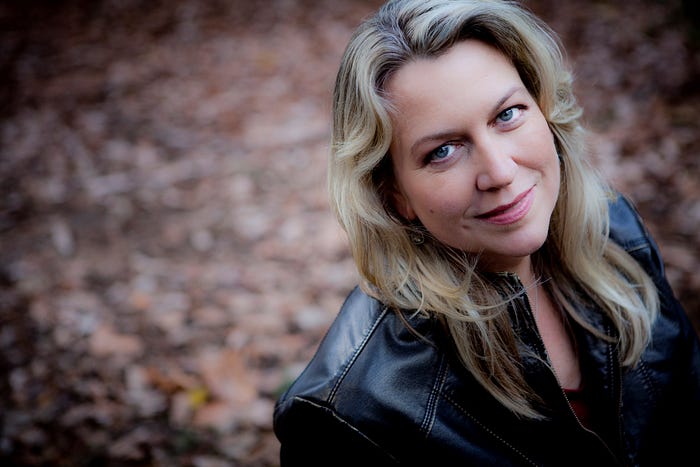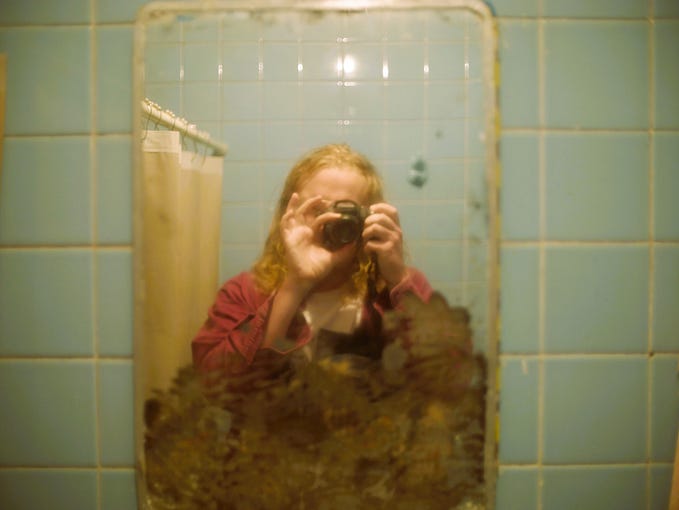Put Yourself in the Way of Beauty: A Deeply Personal Interview with Cheryl Strayed
The bestselling author of Wild speaks about how to be Brave Enough, turn grief into growth, and put yourself in the way of beauty
When I signed up for two writing workshops with Cheryl Strayed (one at Esalen, one in Maui), I had no idea that they would change my life. I went to the workshops, because I already loved her books, especially Tiny, Beautiful Things, and Wild, but I expected more of a nice summer camp experience rather than the deeply transformative retreat it turned out to be. What impresses me most is her encouragement to “have the humility and nerve to tell the truth about what you know, the deepest rawest truest truth, as a human and as a writer,” as she said in Maui. Cheryl Strayed generously spoke with me about her own journey, grief, and posttraumatic growth.
Michaela Haas: In your latest book Brave Enough, a collection of your most popular quotes, you describe quotes as “mini-instruction manuals for the soul.” What`s a quote that became your lifeline you held onto in your darkest hours?
Cheryl Strayed: When I was hiking the Pacific Crest Trail I remembered Winston Churchill`s “Never give in.” A quote doesn`t have to be incredibly complicated or profound to have a profound impact. It can be something as simple as, “I can do this!” This might allow you to do something that you think you can’t do. The quote I essentially made up for myself on the hike is just a statement, “I`m not afraid.” When I felt fear at the outer edges of my imagination, I decided to push it away with that sentence. One of the most important quotes in my life came from my mom, “Put yourself in the way of beauty.” When my mother first said it to me, I would greet it with a sense of impatience, but later it would become a sentence that helped me become resilient, to look at the bright side, and to reach for beauty even when it felt hard to do so. My mom gave me the tools to save myself.
In Brave Enough you say,
“When you recognize that you will thrive not in spite of your losses and sorrows, but because of them, that you would not have chosen the things that happened in your life, but you are grateful for them, that you will hold the empty bowls eternally in your hands, but you also have the capacity to fill them? The word for that is healing.”
To me, this is a very poignant description of posttraumatic growth. What do you think helps us thrive not in spite but because of our losses?
I feel like I have written about posttraumatic growth in all of my books, I just never have given it that lovely name. Frankly, that`s the story of my life. It is the story of so many people who have overcome. I hate the word overcome, actually, because it sounds like a negation of the experience. The key to my ability to move on with a sense of life and beauty has to do with the fact that I always carry my suffering with me. Part of what I was struggling with when I was grieving my mother, was this idea that I should “get over” this loss. And of course, when you do have a big sorrow, you will never get over it. Instead I learned to say, ‘This is never going to be okay, but I`m learning to carry it with me.’ Once I learn to say, yep, here is this part of my life that is sad and hard and unfortunate, I can make room for other things, things like happiness and contentment and peace. In so many ways I learned to look at that burden, that suffering I had to carry, as a gift, even though it is a gift I would gladly return to the store. The fact is that this gift is mine and that I need to make something of it. I`ve made a lot of progress in my life in part because I decided to strive to turn that ugly experience into something else, something beautiful. Every time somebody writes to me and shares that my book helped them, I`m making good on that idea. That`s a big deal. I know more about myself and other people, because this experience of suffering and loss allowed me to see something I couldn’t have seen otherwise.
But it took some time, right?
I think it`s perfectly legitimate at the beginning to experience something as negative. After my mother`s death, I was deeply sad. I wasn’t capable of seeing the positive aspects of such a loss and I think it’s unhealthy to be capable of such a thing when you’re in the midst of deep sorrow. But then there comes a time when you say, “Will I let this rule my life or not?” Will you lead your life letting your sorrows and losses dominate you and rule you and essentially narrate your life story? I just say no to all these things. I wanted there to be a better story. I made it so. Just like we all have to make it so.
Can you share what helped you when you were going through the grief and heart break?
I think the number 1 thing that makes us stronger is love. Sometimes even just the memory of love. When I was at my bottom, the thing that really pulled me through was that I realized so much of the negative feelings I had inside of myself, so much of that grief, or of that sense of ‘I can`t live’ or ‘I`m messed up’ had to do with just how much I loved my mom. And that ended up being an awakening: wow, grief is actually about love. So here again we have this ugly thing that is actually a beautiful thing. Grief is ugly, and yet we wouldn`t be grieving as fiercely as we do, if we didn’t love that person. Grief is only about love. Remembering that was really powerful to me, also remembering the love my mother had for me. Thinking I have to make good on this. That`s another thing my mother used to say that drove me crazy: “We aren’t poor, we`re rich in love.” My whole life I have been rich in love. And part of it was that I reached for it. Even in the hardest times I have always sought connections, and consolation from other people─sometimes in the form of people who are long dead, people who wrote books or poems or essay that I carried around in my purse because they spoke truth to me. That manifested itself as love in books.
Your mom was also such a beautiful example of, as you describe it, an “unbending spirit”, because though she experienced a lot of violence, she did not give up.
Absolutely. My mom was this optimist and such a powerful force in my life. When I asked her about my father who was abusive, she would never speak ill of him. She spoke of him in either neutral or positive terms, but not in a way that was glossing over things either. This idea of complexity, that you can have ugliness and beauty right next to each other, and in fact, you almost always do, right? Her very essence, her very way was a guiding light to me. We do have to reach for love is another way of saying, “Put yourself in the way of beauty.”
Michaela Haas, PhD, is the author of Bouncing Forward: Transforming Bad Breaks into Breakthroughs (Atria/Enliven, 2015) and Dakini Power (Shambhala, 2013). Find more inspiring interviews about resilience and posttraumatic growth on www.MichaelaHaas.com, www.facebook.com/MichaelaHaasPhD, and Twitter @MichaelaHaas!










